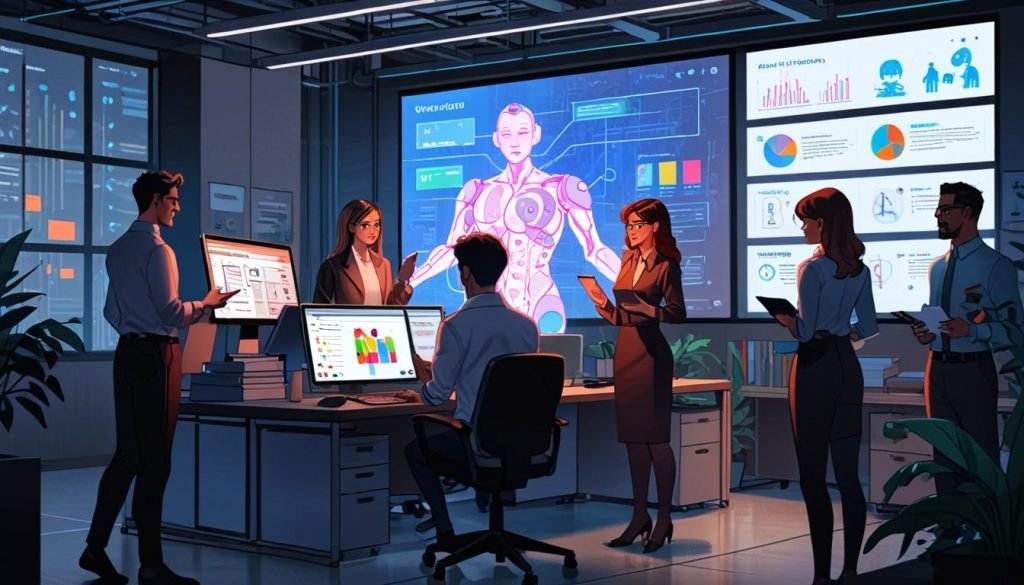**London**: Experts reveal that while generative AI presents significant opportunities for enhancing supplier relationships, many organisations struggle with adoption due to budgeting, expertise shortages, and inflated expectations. Anticipated advancements by 2025 may finally unlock AI’s potential across various industries.
In recent discussions regarding generative AI (GenAI) and its impact on various sectors, experts have noted significant challenges and opportunities as businesses seek to integrate this technology into their operations. As reported by Datanami, organisations are navigating the complexities surrounding supplier relationship management (SRM) by harnessing unstructured supplier data to bolster supplier relationships further.
The conversation around GenAI began in earnest two years ago, as businesses recognised the potential of this technology to transform operations. However, the rollout has encountered roadblocks related to budgeting, resource allocation, and finding a demonstrable return on investment. A crucial aspect of this budget involves directing funds toward applications aimed at enhancing user interaction through conversational AI. Many companies are venturing into the realms of chatbots and knowledge-driven applications, aiming to leverage insights extracted from unstructured supplier data to improve supplier relationships.
Assessing the landscape, it’s evident that generative AI is still in the early phases of its adoption across industries, with many companies yet to deploy production-grade applications. Despite the notable capabilities demonstrated by tools like ChatGPT, widespread operational use remains largely elusive. Experts anticipate a turning point by 2025, projecting that this will mark the year when significant advancements in AI deployment are realised.
Critics have raised concerns regarding the “more than a chatbot” narrative, viewing it as premature given that many organisations have yet to establish effective chatbot systems. Leaders in IT and AI vendor space often advocate for advanced applications without practical experience from foundational deployments—a critical oversight when considering the role of GenAI in SRM.
When exploring generative AI’s trajectory in relation to previous technological advancements, parallels can be drawn to the emergence of mobile applications and social media. The gradual integration of these technologies into business operations suggests that the same will occur with GenAI, requiring a period of adjustment and learning.
Challenges remain prominent, including inertia in adoption, a shortage of expertise, and the need for robust infrastructures. Many enterprises are hesitant to embrace GenAI, adopting a wait-and-see approach. This hesitance may be compounded by inflated expectations stemming from popular culture. To fully leverage generative AI, businesses are recognised as needing to enhance their tooling, architecture, and data observability systems, ensuring they can effectively integrate AI solutions.
Industries that are likely to reap the most immediate benefits from generative AI include those with high engagement requirements, such as customer service, retail, and technical support functions. AI’s ability to enhance customer interactions and provide real-time data insights holds considerable promise in these areas, particularly when it comes to processing unstructured supplier data.
The role of venture capital in financing generative AI has been instrumental yet not without missteps. Investment patterns have mostly favoured model development rather than critical AI infrastructure. However, as funding shifts toward tooling and deployment solutions, the need for industry-specific understanding has become crucial for success. Many firms are thus realigning their focus, acknowledging the complexities of the enterprise software market.
The potential for generative AI to fundamentally alter enterprise operations is evident. Predictions indicate 2025 will witness a transition from hype to practical applications of AI, embedding advanced capabilities into various business sectors. Future developments could empower scientists and technologists, allowing for quicker advancements in critical fields, ultimately enhancing operational capabilities and efficiencies.
While current chatbot applications may be dismissed as outdated, their deployment within enterprises remains pertinent as many organisations have yet to maximise their potential. The focus for 2024 and beyond rests on creating functional, scalable solutions for customer interactions and internal support systems.
The anticipated evolution of generative AI heralds a new era in digital engagement, set to be the fourth major wave following the web, social media, and mobile technology. Companies that effectively incorporate GenAI into their business operations stand to gain a competitive edge, utilising unstructured supplier data and AI tools to refine relationships. Ultimately, the ongoing evolution of generative AI presents significant opportunities for enterprises to improve their operations and enhance their overall effectiveness in the marketplace.
Source: Noah Wire Services





